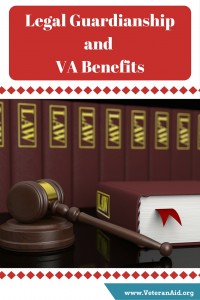Legal Guardianship and VA Benefits
Posted in Uncategorized on May 16, 2016
Tags: aid and attendance, tips for caregivers, tips for seniors, veterans, veterans benefits
If you are a caregiver for a veteran, you are most likely navigating a complicated world of rules, guidelines, and benefits. Not only are you establishing a new relationship with your loved one as his or her caregiver, you’re also creating a new daily routine, familiarizing yourself with a long list of prescriptions, and getting a grasp on his or her  additional daily and monthly finances.
additional daily and monthly finances.
At some point, you may face the reality that your loved one can no longer manage certain aspects of his or her life fully on their own. They may need help with a few or many activities of daily life (ADLs), managing finances, or taking care of their health. Your loved one’s doctor will at some point confirm your concerns and officially label your loved one as “incompetent.” While this can be a sad or difficult thing to hear, the diagnosis actually does clarify some elements of caregiving and can actually allow you to obtain legal guardianship of your loved one.
Guardianship is different from power of attorney (POA) in that a guardian is appointed by the court, while POA is established by the person him or herself. Because guardianship does remove many personal freedoms and makes a person a “ward,” it is often only explored after a POA is deemed to no longer be effective.
Mental incapacity, such as that created by dementia or Alzheimer’s disease, can affect a person’s ability to legally sign POA documents, or can alter a personality so much that the person refuses care or assistance, potentially endangering him or her. In these cases, guardianship is the best decision for the care recipient, although it does transfer significant responsibility to the caregiver. Guardianship is obtained through a court proceeding and granted by a judge.
If your loved one is a veteran and you have officially become his or her guardian, you must be sure to provide documentation of this in order to receive VA benefits such as the Aid and Attendance (A&A) Pension (note that spouses of deceased veterans are also eligible for Aid and Attendance benefits). The A&A Pension provides benefits for veterans who require the regular attendance of another person to assist in ADLs and can provide up to $1,788 per month to a veteran, $1,149 per month to a surviving spouse, or $2,120 per month to a couple.
Another very important aspect to consider is that, while guardianship is appointed by state courts, the VA is under federal jurisdiction and may or may not honor the ruling of the state judge. The VA employs its own set of ratings and may separately appoint a federal fiduciary to manage a veteran’s finances and benefits if the VA doctor has diagnosed them as incompetent during examination. While the VA officially prefers fiduciaries to be a family member or next-of-kin, you may need to apply for a change of fiduciary if one has been established before you have been named guardian by a state judge.
When the time comes to appoint an official guardian for your loved one, ideally all family members will be in alignment and the VA can be immediately contacted with appropriate documentation to transfer decision-making responsibilities right away. Pension benefits like Aid and Attendance can really make a difference in quality of life for both veterans and their caregivers, and understanding and applying for these benefits in a prepared manner can make the entire transition less stressful on all involved. Find out more about the A&A pension benefit.
Written by Megan Hammons




Leave a Reply
You must be logged in to post a comment.